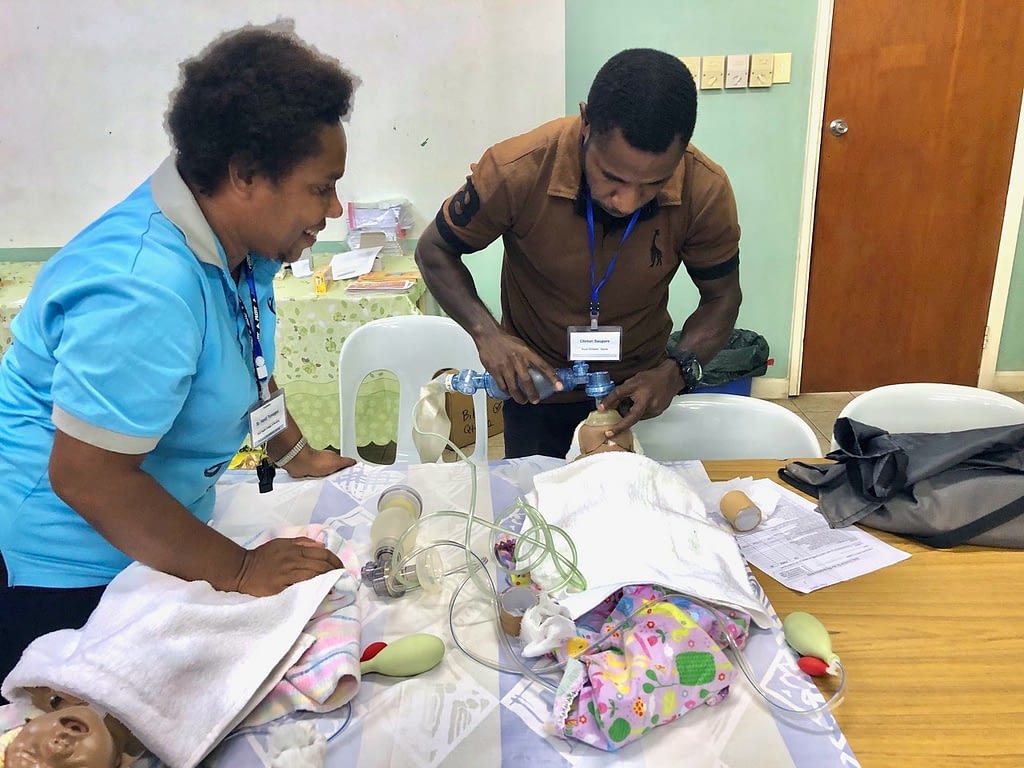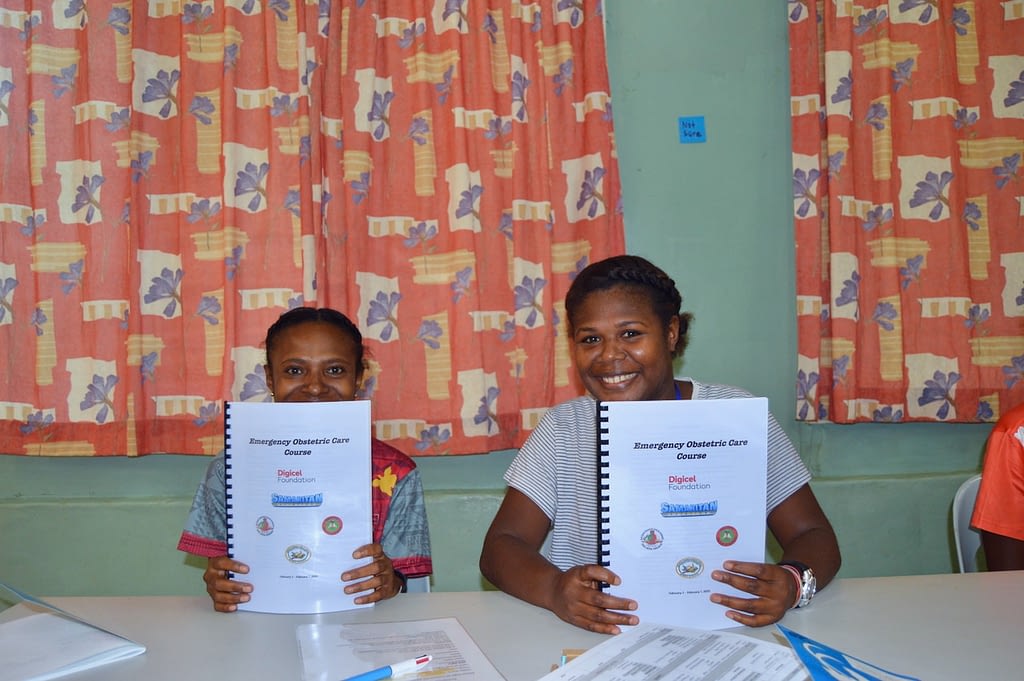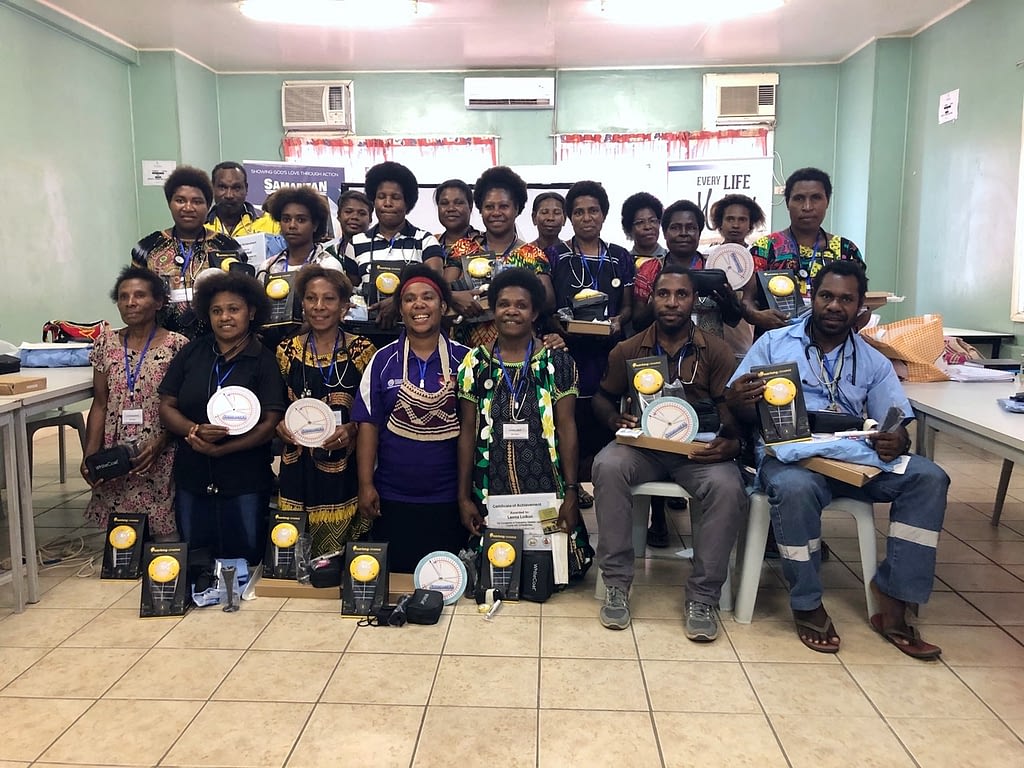PARTNERING WITH DIGICEL FOUNDATION TO TRAIN RURAL HEALTH WORKERS
Imagine you are a nursing officer at a clinic in a remote village in PNG.
You see patients from 8am to 6pm with no breaks. Your staff is minimal, and your clinic is undersupplied with meds and vaccines. You’re tasked to meet the needs of the people in your area, despite poor lighting in your clinic and no sheets on the beds, lacking basic equipment such as refrigerators, oxygen tanks, and scales. When you leave for the day, desperate patients come to your home. Trauma and death are common.
This past month, Samaritan Aviation launched a program to help meet the emotional, spiritual, and professional needs of 22 dedicated nursing officers from rural health centers. Thanks to a generous grant from the Digicel Foundation and instructors from the East Sepik College of Nursing, this first-of-its-kind 40-hour Emergency Obstetric Care refresher course was successfully delivered. The course is designed to train health care workers to help mothers who are experiencing prenatal or labor complications, one of the most common problems requiring medevac flights. In addition, using the book Healing the Wounds of Trauma, our staff facilitated further training. Each nurse was presented with a new stethoscope, pulse oximeter, blood pressure cuff, and solar light.
This training was a huge step for Samaritan Aviation, as we continue to advance God’s Kingdom into the remote communities of PNG through relationships. During the week of training, tears were shed as intimate stories of loss and grief were shared. As we listened to one another, we increased our understanding, helping us to collaborate more efficiently to provide aviation and medical services to underserved communities.
“We don’t usually see what’s happening with the emotional or the spiritual side of our patients. It also helps us as nurses personally, as we are human and it’s natural to feel emotion, loss and pain. Understanding the stages of grieving was especially helpful for me.
If I can heal from my wounds and pain, the more I will be able to help my patients do the same.”
-Rural Nurse about the Healing the Wounds of Trauma course





